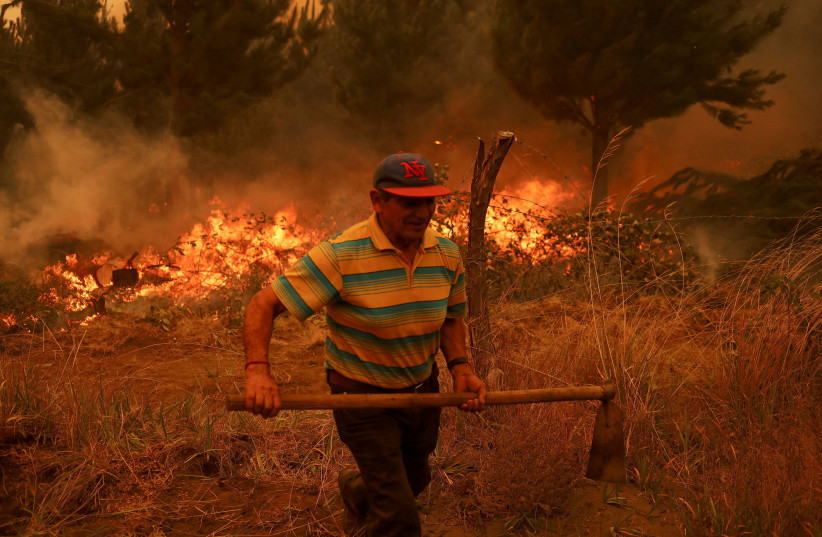Dozens of wildfires blazing through Chile caused the government to extend an emergency order to another region on Saturday, as a scorching summer heat wave complicates efforts to control fires that have claimed at least 23 lives so far.
More than 1,100 people have sought refuge in shelters while at least 979 people have been reported injured by the raging fires, according to an official briefing later on Saturday.
The latest emergency order covers the southern region of Araucania, next to the previously declared Biobio and Nuble regions, located near the middle of the South American country's long Pacific coastline.
"Weather conditions have made it very difficult to put out (the fires) that are spreading and the emergency is getting worse," Interior Minister Carolina Toha told reporters at a news conference in the capital Santiago.
"We need to reverse that curve," she added, noting that on Friday 76 more fires had ignited.

Another 16 fires sparked to life on Saturday, according to officials, as local temperatures in the Southern Hemisphere summer exceeded 104 degrees Fahrenheit (40 Celsius).
The sparsely populated three regions covered by the emergency orders are home to many farms, including where grapes, apples, and berries are grown for export, plus extensive tracts of forest land.
Officials told reporters on Saturday that the governments of Spain, the United States, Argentina, Ecuador, Brazil, and Venezuela have offered help, including planes and firefighters.
On Friday, an emergency-support helicopter in La Araucania crashed, killing its pilot and a mechanic, according to officials.
Authorities reported that 11 of the victims or nearly half of the casualties reported so far, died in the town of Santa Juana in Biobio, located some 310 miles (500 km) south of Santiago.
Efforts to contain the flames
Since late last week, helicopters have dropped fire retardant over raging fires as billowing clouds of smoke obstruct roadways. Firefighters and local residents alike are struggling to contain the flames against the backdrop of a hazy orange-tinted sky.
The orders allow for the deployment of soldiers and additional resources to deal with the natural disaster.
"I left with what I had on."
Carolina Torres, witness and fleeing bystander
Some 40,000 hectares (99,000 acres) have been burnt by the fires, according to official data released late on Friday, an area larger than the US city of Philadelphia.
National forestry agency CONAF reported on Saturday that 80 of 231 total wildfires are being actively battled, while 151 of them are under control.
Officials said that over 90% of the wildfires have been smothered before they spread beyond 12 acres (5 hectares).
But for those unlucky enough to get caught up in one of the uncontrolled wildfires, an immediate evacuation was the only option.
"I left with what I had on," said Carolina Torres, who fled from an approaching fire near the city of Puren, in the region of Araucania.
"I think everyone here did the same thing because the winds shifted and you just had to grab everything right away."
On Friday, President Gabriel Boric cut short his summer vacation and traveled to Nuble and Biobio, pledging to make sure the affected areas receive all necessary support.
Boric also pointed to "signs" that some fires may have been started intentionally, but did not provide any additional details.
The Environment and Climate Change portal is produced in cooperation with the Goldman Sonnenfeldt School of Sustainability and Climate Change at Ben-Gurion University of the Negev. The Jerusalem Post maintains all editorial decisions related to the content.
